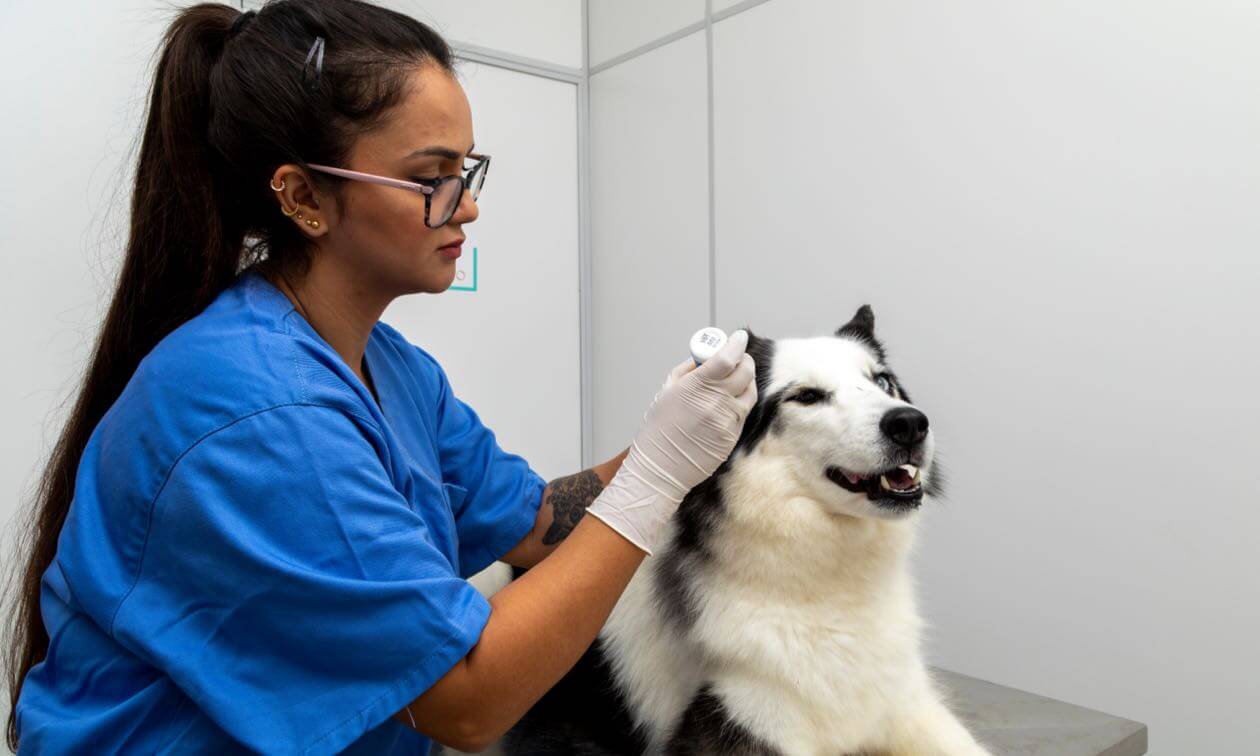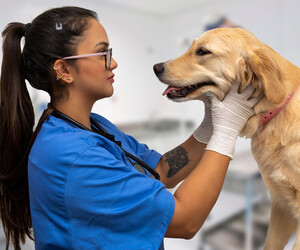Vaccination Guidelines From Your Relied On Vet
Vaccination guidelines provided by your relied on veterinarian play a crucial function in protecting your animal's health and wellness and wellness. Core vaccines are fundamental for all pets, while non-core injections can be customized to specific way of lives and ecological direct exposures. Comprehending the subtleties of vaccination schedules, which begin as early as six to eight weeks, is crucial for ideal protection. Additionally, attending to common misconceptions bordering injections can even more enhance family pet proprietors' confidence in these preventive measures. As we explore these vital facets, it comes to be increasingly clear why routine assessments with your veterinarian are crucial for educated decision-making.

Value of Inoculations
Vaccinations play an essential role in protecting animals against a series of preventable diseases. By stimulating the immune system to acknowledge and battle certain pathogens, injections considerably reduce the occurrence of infectious conditions that can affect a family pet's wellness and durability. Not just do inoculations safeguard specific animals, however they also add to herd immunity, thus minimizing the total prevalence of illness in the pet populace.
Prompt inoculations help to reduce the spread of illness such as rabies, parvovirus, and distemper, which can have extreme repercussions for both people and pet dogs. In addition, inoculations are commonly a need for boarding facilities, brushing solutions, and pet dog parks, making them necessary for those who wish to socialize their animals.

Core Injections for Pets
While the specific inoculation requirements of pet dogs can vary based on private variables, core vaccinations are widely suggested to safeguard versus one of the most typical and major illness (Vet Enterprise). Core vaccines are those considered vital for all animals, no matter of their way of life or geographical location, as they protect against potentially deadly and extremely infectious health problems
For pet dogs, the core vaccinations consist of those for canine distemper, parvovirus, adenovirus (liver disease), and rabies. Adenovirus can result in liver condition, while rabies is a zoonotic illness that positions a risk to both family pets and humans.
In pet cats, core vaccines encompass feline panleukopenia, feline calicivirus, feline herpesvirus (rhinotracheitis), and rabies. Feline panleukopenia is a very contagious viral disease that impacts the immune system and intestines. Calicivirus and herpesvirus are significant factors to top respiratory system infections in felines, while rabies continues to be a critical issue for public health.
Seek advice from your vet to ensure your pet dogs get their core vaccinations on time.
Non-Core Vaccines Explained
Non-core vaccinations are tailored to address details dangers related to a pet dog's environment, exposure, and way of living to specific diseases. Unlike core vaccinations, which are universally recommended for all pets, non-core injections are thought about based on private circumstances. These vaccinations are specifically vital for animals that might experience unique microorganisms as a result of their geographical area, traveling habits, or tasks.
Instances of non-core injections consist of those for Bordetella bronchiseptica, which is linked to kennel cough, and Lyme disease, triggered by ticks. Family pets that often interact with various other animals, such as those in boarding centers, canine parks, or brushing settings, might gain from Bordetella inoculation. If you live in an area where Lyme disease is widespread, vaccinating against this illness can be a prudent option for outdoor-loving canines.
Various other non-core vaccinations might consist of those for leptospirosis, canine flu, and feline leukemia, depending upon the specific threat variables present. It is necessary to have a comprehensive discussion with your veterinarian regarding your pet's way of life and the potential need for these vaccinations, ensuring a customized vaccination technique that finest shields your furry close friend.
Vaccination Arrange Introduction

As family pets grow, it is very important to follow the advised booster vaccinations. Pet Health Checkup. For grown-up pets, core vaccinations are generally offered each to three years, depending upon the specific vaccination and neighborhood policies. Non-core vaccines may be suggested based upon way of living factors and regional disease frequency, necessitating a tailored technique
Routine veterinary examinations are important for updating vaccination schedules. Your vet can give support on one of the most suitable booster shots for your animal, considering age, health and wellness standing, and environmental risks. By remaining positive and informed, pet proprietors can ensure their fuzzy friends obtain efficient and prompt inoculations, thus protecting their wellness and well-being throughout their lives.
Usual Misconceptions Regarding Vaccinations
False impressions concerning animal vaccinations can bring about confusion and unwillingness amongst family pet proprietors pertaining to the booster shot procedure. One widespread myth is that vaccinations are unneeded for interior pets. While it holds true click here now that indoor pet dogs face reduced threats, they are not totally immune to diseases, as virus can be introduced via numerous methods, including human clothes and various other pet dogs.
An additional mistaken belief is that injections can create the diseases they aim to protect against. Actually, a lot of vaccinations have inactivated or attenuated pathogens, which can not trigger disease in healthy and balanced pets. Some animal owners also think that their animals should not be vaccinated if they are already healthy and balanced; nevertheless, inoculations are a proactive go measure that aids prevent the onset of health problem.
In addition, lots of pet dog owners are afraid that vaccines will certainly result in long-term health and wellness issues. While adverse effects can occur, they are short-term and usually moderate. The benefits of inoculation-- shielding pets from potentially dangerous conditions-- much surpass the dangers. Understanding these usual misconceptions is vital for responsible animal ownership and guaranteeing the health and safety of your fuzzy buddies. Always consult your veterinarian for exact info customized to your pet dog's particular needs.
Verdict
In recap, adherence to vaccination guidelines is vital for ensuring the health and wellness and longevity of family pets. Core vaccinations supply essential security versus serious diseases, while non-core vaccinations attend to certain threats based on private way of livings. Developing an extensive inoculation routine, combined with normal veterinary examinations, assists in ideal health management. Resolving common myths bordering inoculations even more enhances the significance of informed decision-making in animal treatment. Inevitably, a proactive strategy to inoculations is crucial for preserving pet click for source health.
Not only do inoculations protect private animals, however they also contribute to herd immunity, therefore minimizing the general occurrence of illness in the pet population.
Mistaken beliefs regarding pet dog vaccinations can lead to complication and hesitation amongst pet owners relating to the immunization procedure. While it's true that indoor pets face reduced dangers, they are not completely immune to conditions, as virus can be introduced through various ways, consisting of human garments and various other family pets.
Some family pet proprietors also believe that their pet dogs ought to not be vaccinated if they are already healthy and balanced; nonetheless, inoculations are a proactive action that assists stop the beginning of ailment.
The advantages of vaccination-- shielding animals from possibly lethal diseases-- far exceed the dangers.